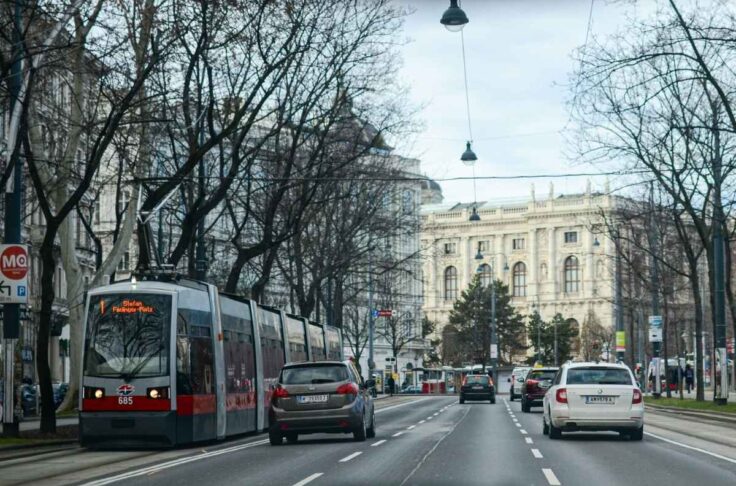Insights Interview on Car Sharing in South Korea
Summary
The South Korean car sharing market is a global key market. We interviewed Jieun Choi, Head of Marketing Department of G car, about the history of the South Korean market, synergies to other mobility markets, the South Korean regulatory framework and the future of car sharing in South Korea. G car is the car sharing brand of Greencar. Greencar was founded in 2009 and launched Korea’s first commercial car sharing service in 2011. As of 2025, over 5 million members use approximately 7,000 vehicles across more than 2,300 parking locations. Every 15 seconds, one of their vehicles is rented.

The Asian car sharing market is complex, featuring a diverse range of business models implemented on the streets. Operators employ various strategies, such as station-based, peer-to-peer, and sometimes free-floating car sharing, to address distinct use cases and offer different services. Especially the East and South East Asian car sharing markets are global key markets and offer different solutions and implementations than European or North American operators. To address and explain some of these complexities, INVERS has published its white paper on “Car Sharing in East and South East Asia”. This 50-page report helps car sharing operators to quickly understand key market dynamics, insights, and trends.
Table of Contents
How would you describe the historic development of the car sharing market in South Korea?
The car-sharing market in Korea has grown with the societal shift from car ownership to usage. Over the past decade, the industry has expanded at a compound annual growth rate (CAGR) of over 7%, and it’s estimated that more than 30,000 shared vehicles are now running nationwide. This growth has been driven by the placement of vehicles in key transportation and daily life areas to provide hyper-local services, as well as the use of IT technologies to maintain cleanliness and safety. These efforts have enhanced service quality and increased user satisfaction with contactless car-sharing services.
Aside car sharing, you also offer other car-related services. What are the benefits?
Greencar’s foundation lies in IT-driven mobility. We provide car-sharing, vehicle delivery, and on-site car wash services to meet the evolving needs of our users. One key characteristic of Korean car-sharing users is their high expectations when it comes to vehicle cleanliness. To meet these standards, we’ve developed our own in-house car wash infrastructure.
We have also adopted an eco-friendly waterless washing method that uses just 500ml of water per vehicle, helping us minimize water waste while maintaining service quality. This is a part of our broader goal to deliver sustainable mobility solutions. Our vehicle delivery service—where cars are relocated or parked in specific areas on behalf of customers—operates in a fully contactless manner. This not only reduces operational costs but also enables convenient services such as one-way (free-floating) rentals and direct vehicle drop-offs. This model also opens up opportunities for gig work, which allows users to generate additional income while participating in the car-sharing ecosystem.
Greencar benefits significantly from the infrastructure and expertise of its parent company, ‘Lotte Rental’, which holds the No. 1 market share in Korea’s rental car industry. Thanks to this relationship, all our vehicles undergo maintenance and care through Lotte Rental’s comprehensive service network. Only vehicles that meet our rigorous inspection standards are made available to users, ensuring a highly reliable car-sharing experience.
Another key differentiator is our integrated platform powered by connected vehicle data. Through this, we offer a seamless system that links Greencar’s car-sharing services with Lotte Rental’s broader offerings—including rental car reservations, chauffeur services, long-term and corporate rentals, as well as used car purchase and sales, and vehicle care services. This full-service lineup allows us to support customers across their entire mobility lifecycle, something that truly sets us apart from the competition.
How is car sharing currently regulated by the Korean government?
In Korea, car-sharing operates under a B2C model, where companies provide services using their own fleet—similar in nature to traditional rental cars—and is therefore subject to rental car regulations.
One of the key limitations is the regional licensing rule: vehicles registered for commercial use in a specific area cannot be used for operations outside that designated region. This restriction can hinder flexible vehicle allocation based on user demand and ultimately leads to missed revenue opportunities for companies. However, there has been a recent regulatory easing. Since 2023, if a one-way rental ends with the vehicle being returned outside of its original licensed area, it can now remain operational in that new location for up to 15 days. This change is expected to reduce mobility costs for users and allow more responsive service coverage.
Secondly, although shared vehicles offer environmental benefits, help reduce transportation costs and serve as a necessary means of mobility in areas with insufficient public transportation, they are not permitted to use public parking lots. In Korea, public parking lots cannot be used for commercial purposes, which forces car-sharing services to rely on private parking at higher costs.
Thirdly, there are restrictions on who can use car-sharing services. While individuals can obtain a driver’s license at the age of 18, car-sharing is limited to those aged 21 and older who have held a license for more than one year. This serves as a barrier to entry for users who need self-driven mobility and is a limiting factor in attracting new customers.
Lastly, P2P sharing, where personal vehicles—not company assets—are shared, remains subject to regulation, although some restrictions are being eased through sandbox programs. These kinds of regulations ultimately increase the burden on customers and are a major reason companies are only able to offer limited services. We hope to see gradual improvements in these areas.
What are your future expectations for the South Korean car sharing market?
The future of car-sharing in Korea is positive. Due to changing perceptions, the outlook for the car-sharing business is bright, and the integration of IT technologies for contactless services further increases the potential for business expansion.
There is growing demand for single-use vehicles tailored to specific situations during travel. In fact, even individuals who own personal vehicles are increasingly using car-sharing services depending on who they are traveling with and for what purpose.
Through the control system, real-time data is collected on vehicle conditions, customer driving behavior, and movement information. Based on this collected data, there are numerous opportunities for business expansion into areas such as insurance, finance, shopping, and advertising, and business models are already being developed accordingly.
Car-sharing is also expanding customer touchpoints not only through its own app but also through channeling. As part of MaaS (Mobility as a Service), integrated platforms are being built across similar services, and channeling is extending into other industries including location-based search and business management solutions based on user behavior.
Further insights into the Asian car sharing market
Thank you, Jieun, for sharing your expert insights.
For more information and interesting findings about Asian car sharing, we encourage readers to check out our 50-page white paper on “Car Sharing in East and South East Asia” with more expert interviews as well as insights from key markets in Japan, South Korea, Taiwan, and Singapore. To discover more from G car, please visit their website.


